
Study at TCU
- Study at TCU TOP
- Graduate School
- Undergraduate School
Restoration Ecology and Built Environment

The Department aims at the education of people who would like to be the ones who can apply a wide variety of knowledge and intelligence to the restoration of ecosystems, cities, regions, and the global environment in the real world. Students will study various environmental problems from a scientific perspective and learn the policies and measures to solve those problems. In order to realize sustainable regional and built environments in harmony with nature, students will nourish the power of environment creation for immediate use in the real world after graduation by learning and acquiring methods of conserving, reclaiming/restoring, and creating a biological environment; technologies for processing and sharing environmental information; methods for analyzing and monitoring an environment; and technologies and methodologies that incorporate natural diversity into an artificial environment to create a comfortable environment.
Educational / Environment Fields
Ecological Environment Field
Society faces a wide variety of environmental problems from global-scale to local-scale issues such as global warming, desertification, and the deterioration of biodiversity and ecosystems by land development. In the Ecological Environment field, students will study global-scale conservation, including the restoration of tropical rainforests and prevention of desertification, as well as the conservation and restoration of our immediate environment in a practical way by visiting various fields at home and abroad.
Iijima Lab (Ecological Application System)
Our laboratory promotes the technical development study and planning science study for city environment formation for human society and ecology system harmonize. We are doing research on various disciplines such as landscape architecture science, green environmental science and preservation of health hygiene to achieve our goals.
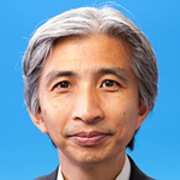
Kitamura Lab (Conservation Ecology)
The aim of our laboratory is to resolve conflict between wildlife and human beings by proposing methods for conserving and managing wildlife. In particular, our laboratory conducting field research mainly on animals including endangered species or alien species for the purpose.
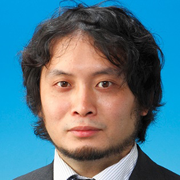
Tanaka Lab (Landscape & Ecosystems)
Professor Dr. Akira Tanaka received three fields of degrees, that is, “conservation ecology”, “landscape architecture” and “environmental policies”. He is an expert of “Ecological Restoration”, “Environmental Impact Assessment” and “Landscape Architecture.” His goal of education is to develop human resources who consider balance between human activities and natural ecosystems including biodiversity, and who try it. The extent of his education for multiple expertize from field practices to policy making, from in urbanized area to in rural area, and from in Japan to in various countries including developing countries, reflects his rich work experience. For more information about Dr. Tanaka: https://www.comm.tcu.ac.jp/tanaka-semi/en/index.html
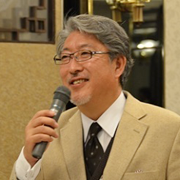
Ham Lab (Environmental Chemistry)
Our laboratory has been monitoring the environmental pollutant behaviors and changes in ecosystems (forested mountainous watershed area, lake, river, shallow well-water nitrate contamination, soil acidification, acid rain & atmospheric deposition rate) with water quality assessment, element cycling (e.g.: nitrogen, phosphorus & toxic heavy metals) and chemical approaches. http://user.tcu.ac.jp/~yhamu/index.html
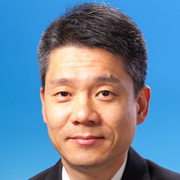
Yokota Lab (Urban Ecological Planning)
We analyze and evaluate urban ecological networks, landscape functions, and ecosystem services toward the integration of urban ecology into ecological planning.
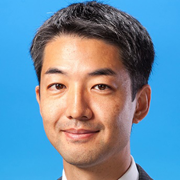
Urban Environment Field
In order to find solutions to urban problems, such as the heat island effect, localized torrential rain, air pollution, and energy use, it is necessary to understand how cities change and the essence of their structure. In the Urban Environment field, students will acquire not only basic knowledge, but also study applications and practices related to measurement, analysis, and design in the fields of urban activities and environment, living environment and land use, thermal environment and thermal comfort, and the architectural environments.
Kayo Lab (Energy Flow in the Built Environment)
Our challenge is to explore ways to get a better understanding of energy flow in our built environment, and to become a responsible person to manage our energy flow by ourselves as a member of “energy community”. To achieve the aims, we apply research methods such as environmental scanning, building performance simulation and mathematical modelling, and try to generate and propose new ideas towards a sustainable future. The researches are basically carried out with the knowledge from building physics, thermodynamics or architectural engineering, but also done together with researchers from such as computer science, architecture, energy engineering, product design and so on as interdisciplinary collaboration.
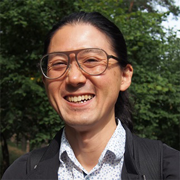
Shi Lab (Smart & Eco City)
Our laboratory aims to provide advanced technology solutions for realizing safe, secure, comfortable, smart and eco cities with the fusion of technologies of GIS (Geographic Information System), RS (Remote Sensing), GPS (Global Positioning System), IOT (Internet of Things), AI (Artificial Intelligence) and so on. https://www.comm.tcu.ac.jp/shi/
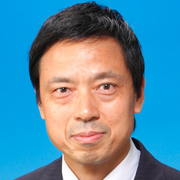
Niwa Lab (Urban Environmental Analysis)
The goal of our research is to make a city that is comfortable for various persons, such as the elderly, kids, and mothers. We analyze and evaluate urban spaces, road networks, accessibility for public transportation to prepare for disaster. This aspect is useful for the weak person when an earthquake happens. http://grp.tcu.ac.jp/niwa-lab/
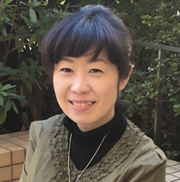
Rijal Lab (Architectural Climatology & Environmental Adaptation)
In our laboratory, we study about thermal environment, air quality and energy use of the traditional and modern buildings and cities which are well adapted to the climates and cultures. We also study the adaptive thermal comfort (comfort temperature, preferred temperature and adaptive model) and occupant behaviours (clothing adjustments, window opening, fan use, cooling use and heating use) for comfortable, healthy and energy saving building design. https://www.comm.tcu.ac.jp/rijal_lab/
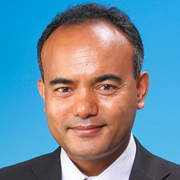
Keyword Search for Researchers
- Search By Keyword
- Search for researchers by their research field and/or publication titles, etc.
- When searching with multiple keywords, please insert a space between the keywords.
- When searching with a keyword that contains space(s), enclose it in half-width quotation marks("").
- Search By Name
- You can search with the full name, last name, or first name of the researcher.
Academic Staff
Professor
|
SHI ZhongchaoProfessor |
|
|---|---|
|
YOKOTA ShigehiroProfessor |
|
|
IIJIMA KentaroProfessor |
|
|
TANAKA AkiraProfessor |
|
|
Hom Bahadur RijalProfessor |
|
Associate Professor
|
GOTO ChikakoAssociate Professor |
|
|---|---|
|
HAM Young-SikAssociate Professor |
|
|
KITAMURA WataruAssociate Professor |
|
|
KAYO GenkuAssociate Professor |
|
|
NIWA YukariAssociate Professor |
|
